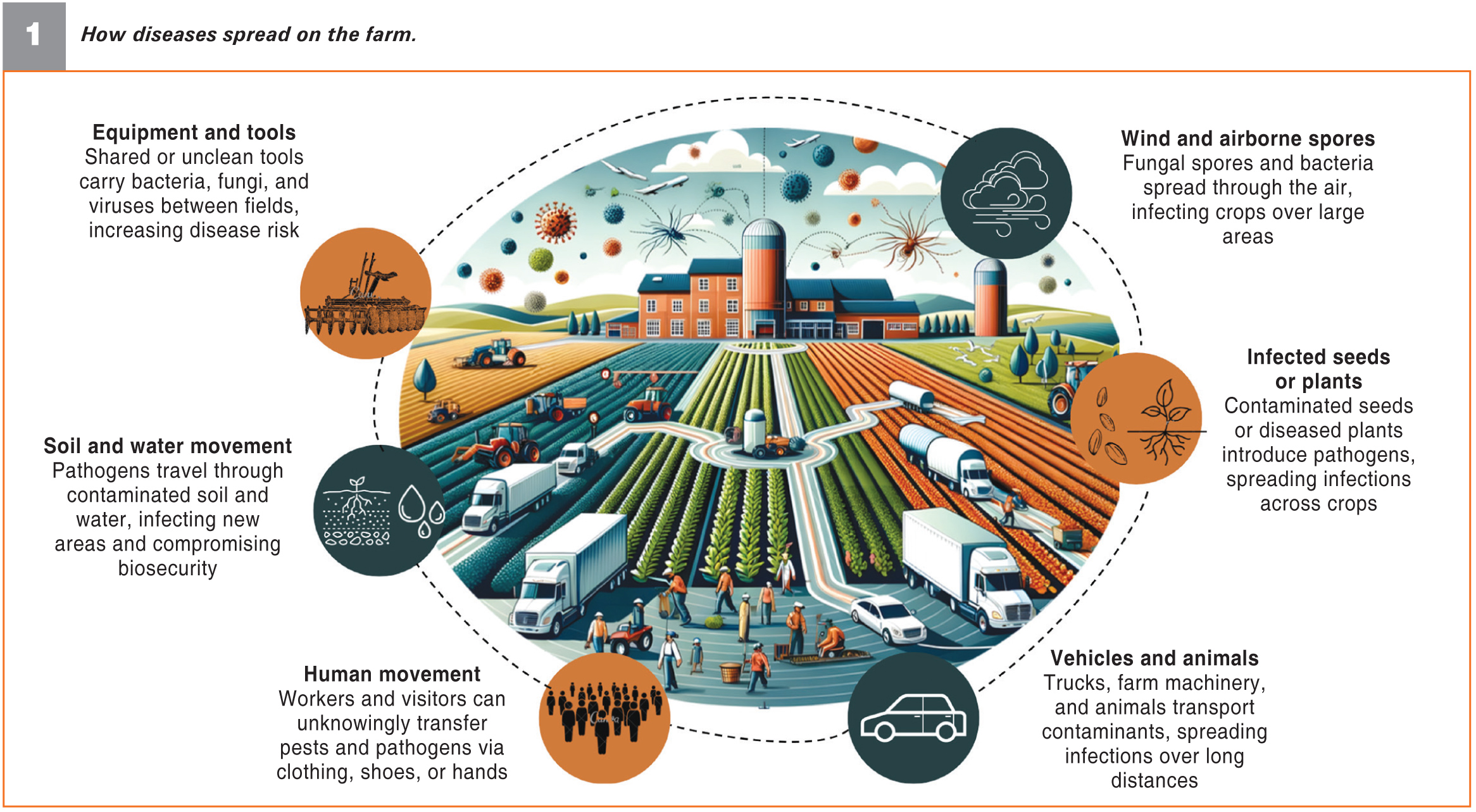April 2025
| DR LAVINIA KISTEN, RESEARCH COORDINATOR AT GRAIN SA |
 |
ON-FARM BIOSECURITY IS THE FIRST LINE OF DEFENCE AGAINST PESTS, DISEASES AND WEEDS THAT CAN HARM YOUR CROPS AND LIVELIHOOD. BY TAKING PROACTIVE STEPS, YOU CAN PREVENT COSTLY OUTBREAKS, PROTECT YOUR FARM’S PRODUCTIVITY AND SAFEGUARD THE WIDER AGRICULTURAL COMMUNITY.
The recent detection of Goss’s wilt in South Africa emphasises the need to ensure proper biosecurity protocols are in place to prevent the spreading of diseases, pests and weeds. Implementing measures such as cleaning equipment, using certified disease-free seeds and monitoring crops for early symptoms can help contain potential threats.
UNDERSTAND HOW DISEASES SPREAD
Diseases can spread through contaminated equipment, vehicles, people or infected plants. Use Figure 1 to understand and mitigate these risks.

6 KEY PRACTICES TO PROTECT YOUR FARM
1. Monitor your crops
Regularly inspect your crops for pests and record your observations.
Familiarise yourself with serious exotic diseases and pests, as well as their symptoms.
Keep detailed written and photographic records of any unusual findings.
2. Ensure an accurate diagnosis – test your crops
If you suspect a new or a resurgence of an existing disease, pest or weed, report it immediately to the Grain SA Research Team and/or the Diagnostic Clinic at FABI (see contact details at the end of the article). The clinic is available to assist with disease identification.
The following steps can be taken to contain the infection whilst waiting for identification:
3. Manage people’s movement
4. Reduce risks from vehicles and equipment
Direct visitors should park in a designated area that can be monitored for diseases, pests and weeds. Ensure all machinery and vehicles entering production areas are clean.
Here are some more helpful tips:
5. Manage grain carefully
6. Manage risks posed by livestock and feed
Ensure that purchased fodder or grain is free of diseases and weed seeds.
By following these guidelines, you can take proactive steps to protect your farm from pests and diseases, ensuring a healthy and productive operation.

A wash station for vehicles and machinery can reduce the spread of diseases.
Contact the Grain SA Research Team to get in touch with the research community for advice or diagnostic services:
Alternatively, you can contact the Diagnostic Clinic at FABI on (012) 420 3939 or diagnostic.clinic@fabi.up.ac.za.
Publication: April 2025
Section: Pula/Imvula